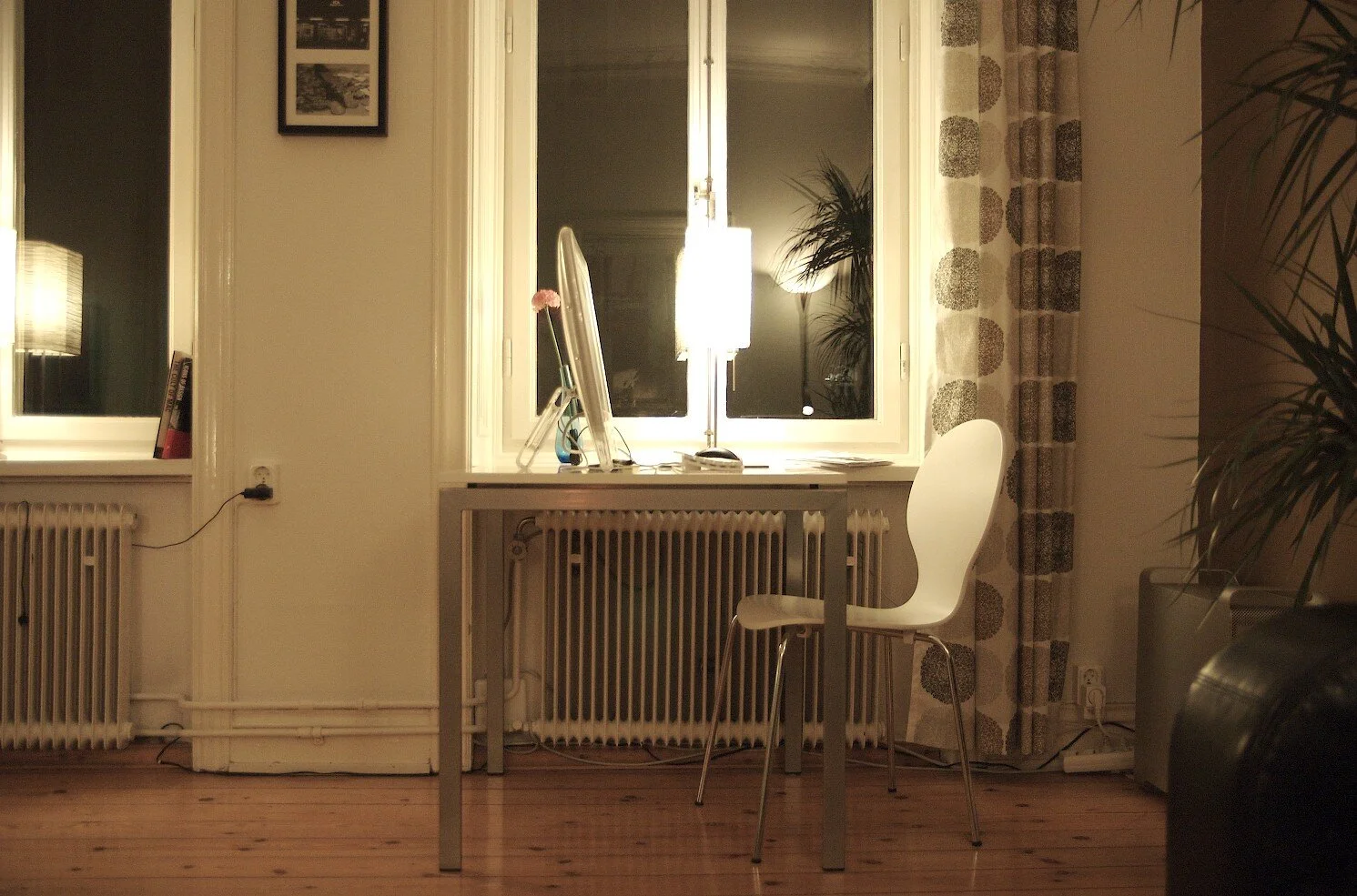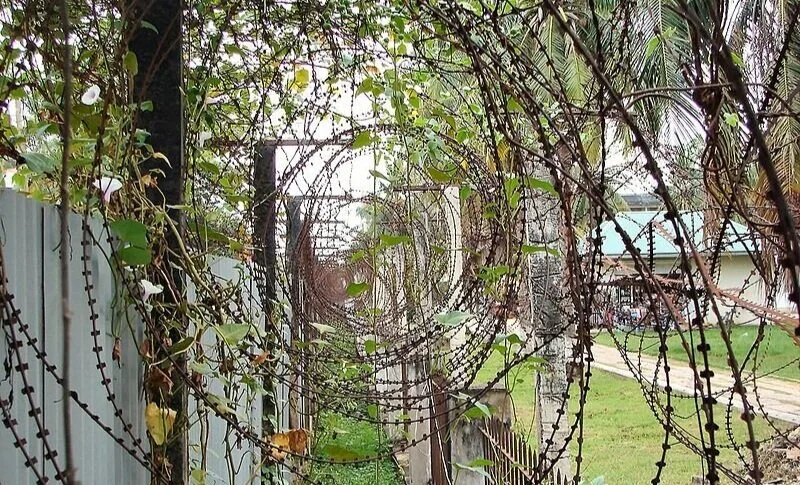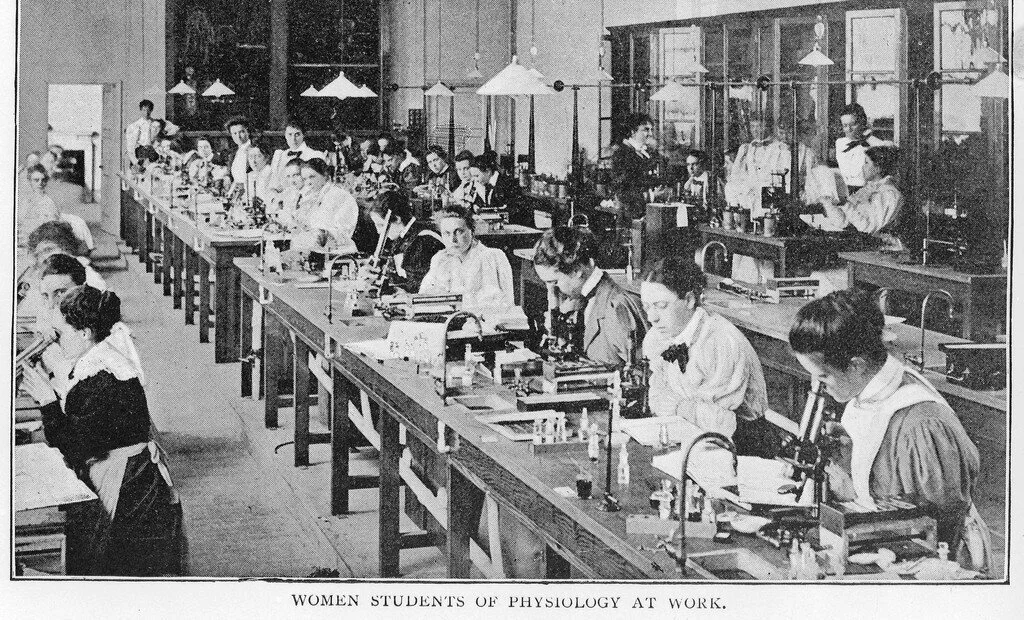The Way We Work Now
I know exactly where I was the day George Floyd was murdered; I was trying to convince my 3-year-old Black son not to use the top of his foot as a scooter brake while swatting the non-edible park collections of his 1-year-old brother away from his mouth. During the fleeting moments of reprieve at the local park with two energetic boys, I swiped through my phone to check email, social media, and the news. Coronavirus and Memorial Day topics dominated until I saw the headline about a Black man dying in police custody. Police. Dying. Black man. The order of words never matter because the resulting visceral tinge is the same as I think about my Black husband and Black sons. Later that evening at home with my husband, I sat down to watch the long, tortuous video of George Floyd being murdered by police. And cry.
The pandemic radically changed the balance between work and personal life for many people, allowing co-workers into our homes via a screen. At the same time, Floyd’s murder altered our understandings of who spoke at the public square. Companies large and small offered proclamations encouraging people to fight anti-Black racism. Conversations about racism were no longer limited to the parties affected, but spanned across races and crept into spaces that normally eschewed such topics, including the workplace, with surprising benefits. Results from a study called Project Aristotle have shown that creating an environment of psychological safety within teams is the highest predictor of productivity, surpassing other metrics like temperament or collective experience. If I hadn’t experienced this myself, I may not have believed it.
Minneapolis, the U.S. and then the world erupted as the 8 minute, 46 second video of Floyd’s murder circulated. But barely 24 hours after Floyd made headlines, work Zoom etiquette returned to my office. All controversial topics were excluded from conversation. It stayed that way for a week until the executive committee of the predominantly Asian and white biotech company I worked for acknowledged Floyd’s murder in an open letter to employees. The gesture was nice but unfulfilling. Cities were aflame, people were grieving, protesters took to the streets, and I was left to find solidarity with my friends, not my colleagues with whom I spent most of my waking hours. My concentration and motivation plummeted.
The researchers at Google who launched Project Aristotle in 2012 could have told me this would happen. Project Aristotle, named after the ancient Greek philosopher who said, “The whole is greater than the sum of its parts,” set out to understand what makes some teams work better than others. After looking at 180 Google teams, conducting hundreds of double-blind interviews, and examining 250 team attributes, the results showed that the best teams displayed expected characteristics like dependability, structure/clarity, meaning, and impact. But the primary characteristic of a productive team was psychological safety. One way scientists measured this was using the Reading the Mind in the Eyes test, which involves showing subjects images of eyes and asking the subject to interpret the feelings or thoughts conveyed, a notion not too dissimilar from the social skills we have all been honing in the era of mask-wearing. People who could understand these non-verbal cues and could ascertain when someone was upset ranked high on the study’s empathy and social sensitivity scale.
The study also evaluated the distribution of team members' participation in meetings. Was it always the same two people speaking or did all team members speak up, irrespective of their level or experience? Researchers dubbed this concept “equality in distribution of conversational turn-taking.”
Taken together, researchers found that soft skills like the ability to connect with colleagues and respect their opinions mattered more than individual IQ or years of experience. Good team members took time to get to know their colleagues as multifaceted people, and did so in ways that ensured no one person felt singled out.
At my workplace, something amazing happened not long after the open letter to employees landed in our inboxes. The flood gates opened. People began to share more of themselves in private email exchanges and in a voluntary but well-attended company-wide forum dedicated to discussing the recent events. Our executive committee vowed to make meaningful changes and supported the creation of a Diversity Equity and Inclusion (DEI) committee. A year later, to my surprise, these company initiatives have not only remained but gained momentum. Nearly every member of the DEI effort was not Black, which reflected the company’s make-up at the time. Tamara Jefferies, a holistic counselor and transformation coach, believes people of color should be supporting anti-racism work by informing, not leading it. “It's just part of the psychology, people receive a message better from someone who looks like them,” she says.
My company’s anti-racism efforts have had collateral benefits. While the catalyst to the company’s movement towards fighting racism was Floyd’s murder, I have seen a concerted commitment to recognizing and squashing all racism in executive emails and company trainings, and an increased effort put into hiring diverse candidates. But the greatest benefit is that we have been given the permission to discuss once-taboo topics, like the uptick in Asian hate crimes during the pandemic, or the history of Black people in this country. Doing so has deepened connections and improved feelings of psychological safety among teammates.
Much has changed in the last year, but I know it is still not enough. On the 1-year anniversary of Floyd’s murder, my now-4-year-old son, who properly brakes on his scooter, overheard a newscaster say that police are killing Black people. And he asks me why. I don't have a good answer for him because there isn’t one. But now, the weight of this emotional burden I carry as a mother to two Black sons is a touch lighter because I know I can allow this part of my identity into chats with trusted colleagues. It’s hard to measure my change in productivity over the last year, but what I can say is that my employer's persistent dedication to support anti-racism efforts has created a tangible sense of psychological safety.
As workers struggle with the new normal of COVID, compounded by the nation's racial awakening, psychological safety in the workplace has never been as important to business productivity as it is today. Google could not have known how relevant their findings from years ago would be in today's workplace. Work and life have become inseparable and once companies recognize this, they can take a small step to build better teams, leading to a stronger company and just maybe a slighter better world. Opening the door to conversations about race in the workplace can not only create more productivity, but more empathy.
Image Credit: Untitled by Rasmus Andersson on Flickr | CC BY-NC 2.0




